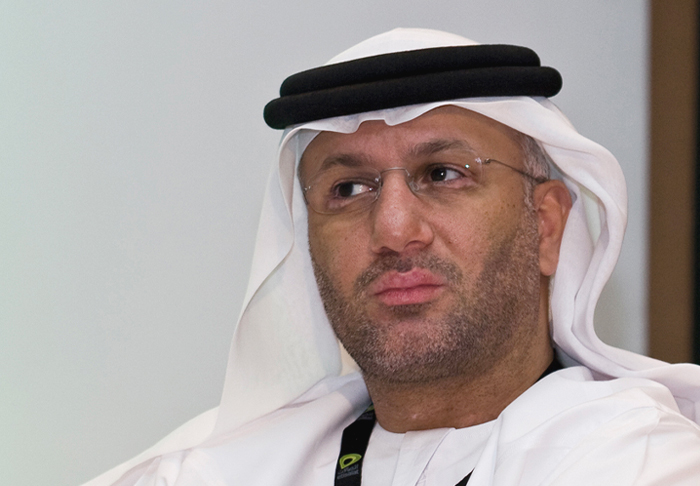Chinese tech company Tencent just burst into the $500bn club this week, surpassing $531bn and becoming more valuable than Facebook. For those of us in the region, the timing is fascinating, coming at a time when Tencent’s subsidiary – e-commerce giant and Amazon rival JD.com – just sent its international president to the Saudi Public Investment Fund’s “Davos-in-the-desert” to explore the country’s $8bn e-commerce market.
Importantly, the timing comes as US President Trump seems to be adopting a de-facto “withdrawal doctrine” pulling America out of the Paris Climate Accord, re-negotiating NAFTA, and de-certifying the Iran nuclear deal. As these changes are taking place, Chinese premier Xi Jingping is attempting to reshape its relationship with Arab countries according to its new “march west” strategy, becoming the single largest foreign investor into the Middle East last year with $29.5bn in foreign direct investments.
Making (tech) friends
Those investments are already taking root. China Arab International Technology Transfer Company, for example, recently signed an agreement with the Sharjah Research, Technology, and Innovation Park to transfer knowledge to Sharjah about 3D printing, digital transformation and industrial modernisation. The park hopes to create a Chinese-Arab innovation centre driving R&D, entrepreneurship, and collaboration between government, the private sector, and academia.
Tech giant Huawei, for its part, has developed innovation hubs in Saudi Arabia, Kuwait and the UAE, turning a distant and exotic Chinese company into a real entity delivering tangible projects in the region.
China’s overseas commercial interests in the Middle East have grown exponentially over the past two decades. Unsurprisingly, energy fuelled a key part of Chinese-Arab economic ties for decades. Now the “new oil” data is rapidly becoming an important part of the relationship, where Chinese tech giants might be better suited to the Middle East than their American counterparts.
In perhaps the most visible symbol of Chinese tech in the region, China’s Hanson Robotics announced it will partner with Etisalat to sell the Chinese firm’s humanoid robots – the famous Sophia – in the region, following widespread international attention to its recent display at the Future Investment Initiative. This suggests that Chinese companies are moving from having transactional relationships with regional counterparts to one of partnerships.
Chinese internet players have also been placing bets on online-to-offline businesses, with cash on delivery, call-centre support, and delivering products from the seller’s cellphone to the buyer’s.
Rival American tech companies have historically been slow to embrace the Middle East. For the Chinese, this presents an opportunity, as the fundamentals of the Middle East’s e-commerce market are far more like that of China and India than that of Silicon Valley.
While Amazon, Netflix, and eBay thrived off the crutch of America’s low-cost, dependable postal service and clear physical mailing addresses, their Chinese counterparts have proven they can thrive in markets without a reliable post service and physical mailing addresses, which, by coincidence, is similar to that found in this region. Chinese companies are more comfortable than their U.S. counterparts in working with early-stage markets, and I wouldn’t bet against them.
In many ways, the Arab leaders charged with driving the development of the Gulf’s digital economies may be waking up to the reality that their tech relationships with China are slowly becoming strategic. A prime example is Saudi Arabia, where rising Chinese influence in the high-tech sector was on full display when the kingdom announced it would be using Chinese expertise to develop its telecom sector. In the UAE, China’s Ministry of Industry and Information Technology recently signed an agreement with the Ministry of Economy to collaborate on expanding SMEs, which constitute 90 percent of registered business in the UAE – an enormous opportunity.
Staying neutral
However, do not expect China to replace America militarily. Beijing is largely focused on domestic job creation, its own economic development and domestic Chinese politics, as well as an overarching foreign policy principle of “non-interference.”
Beijing exhibits a deep sense of vulnerability in its Middle East engagement, and endeavours to protect its expanding interests in the region by assiduously avoiding taking sides in Middle East controversies. The ‘wary dragon’ is cautious about becoming embroiled in conflicts or getting too close to any one country in the region.
A greater involvement in security matters, China fears, could wreck its remarkable status as perhaps the one external power that remains on good terms with every major Middle East country. China is worried that greater diplomatic activism and regional security engagement would come at the cost of blood and treasure, and could jeopardise its reputation as friend to all and enemy of none.
At the moment, the future is by no means clear. But don’t dismiss China. As soon as 2022, its economy is expected to be 78 percent the size of America’s, and its internet titans, powered by the world’s largest e-commerce market, are well-suited to thrive in the rapidly developing countries of the Middle East.
Stay tuned.










